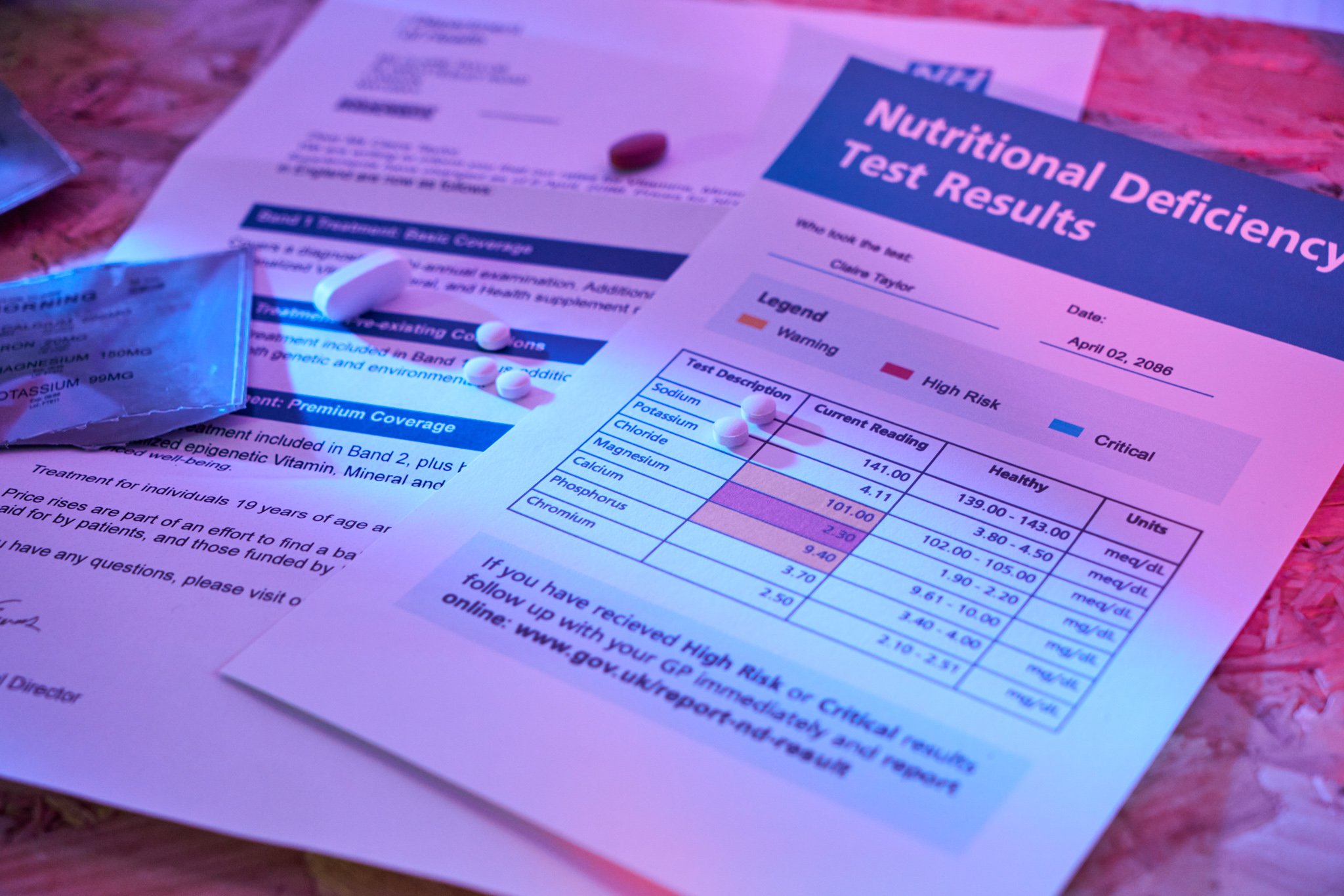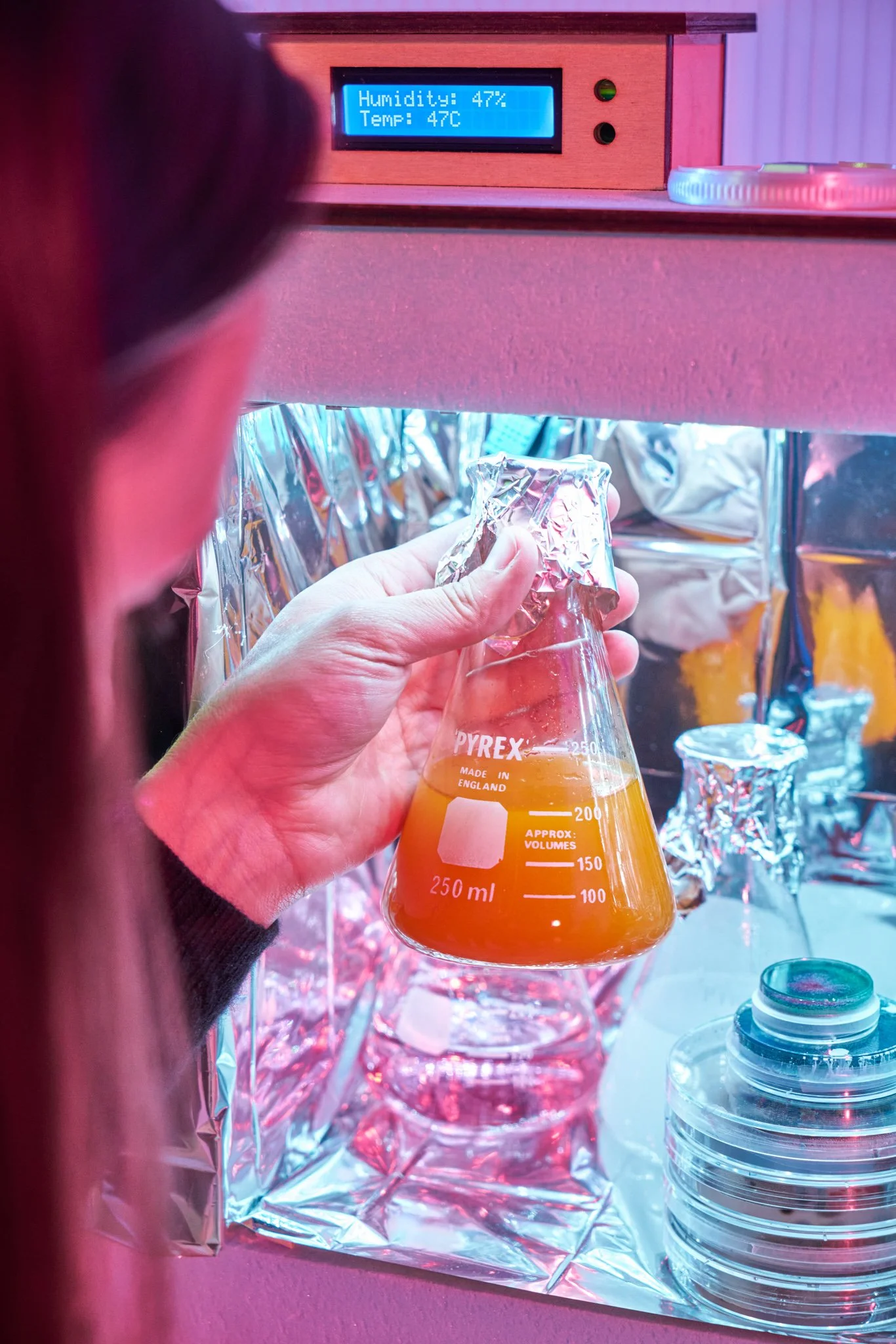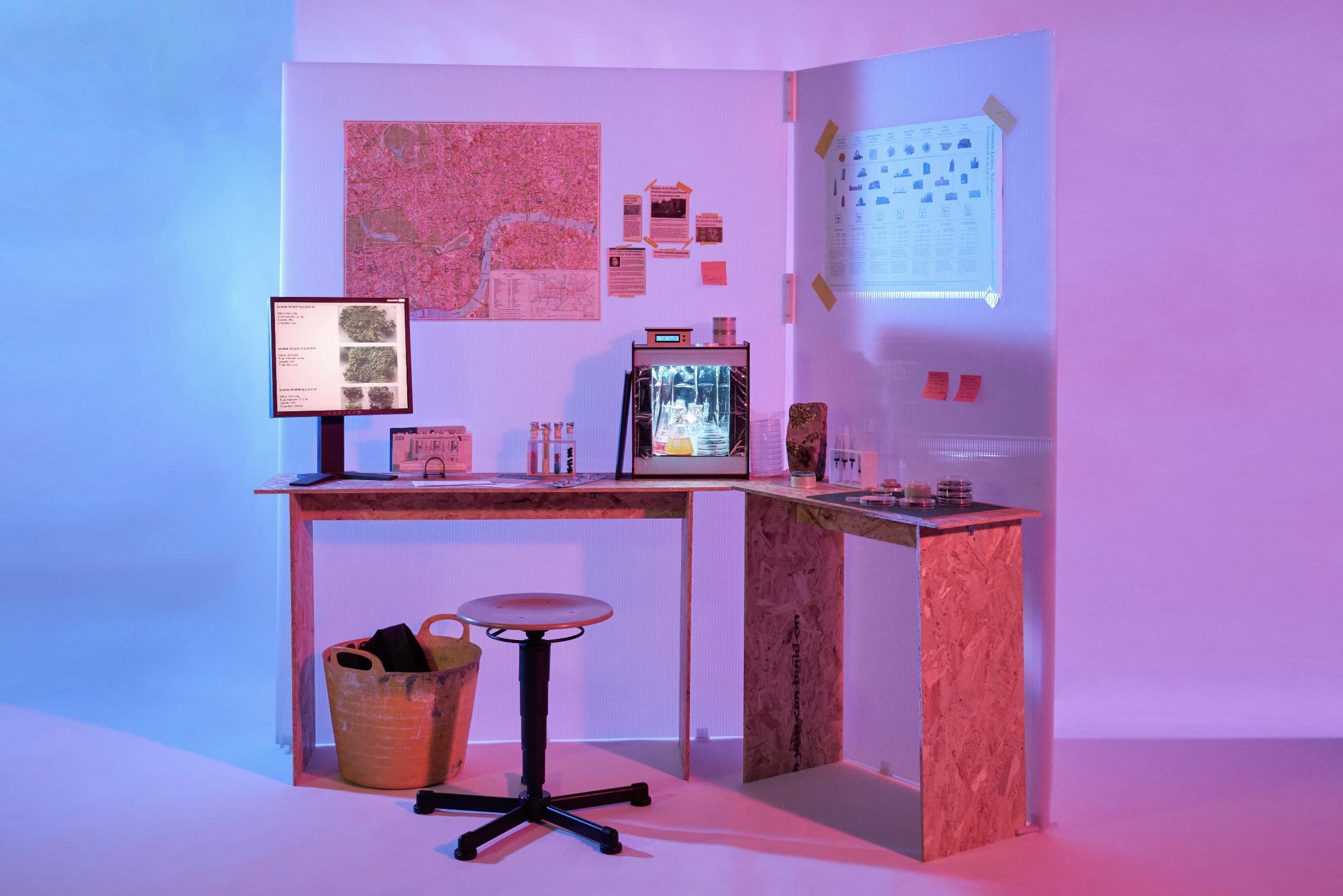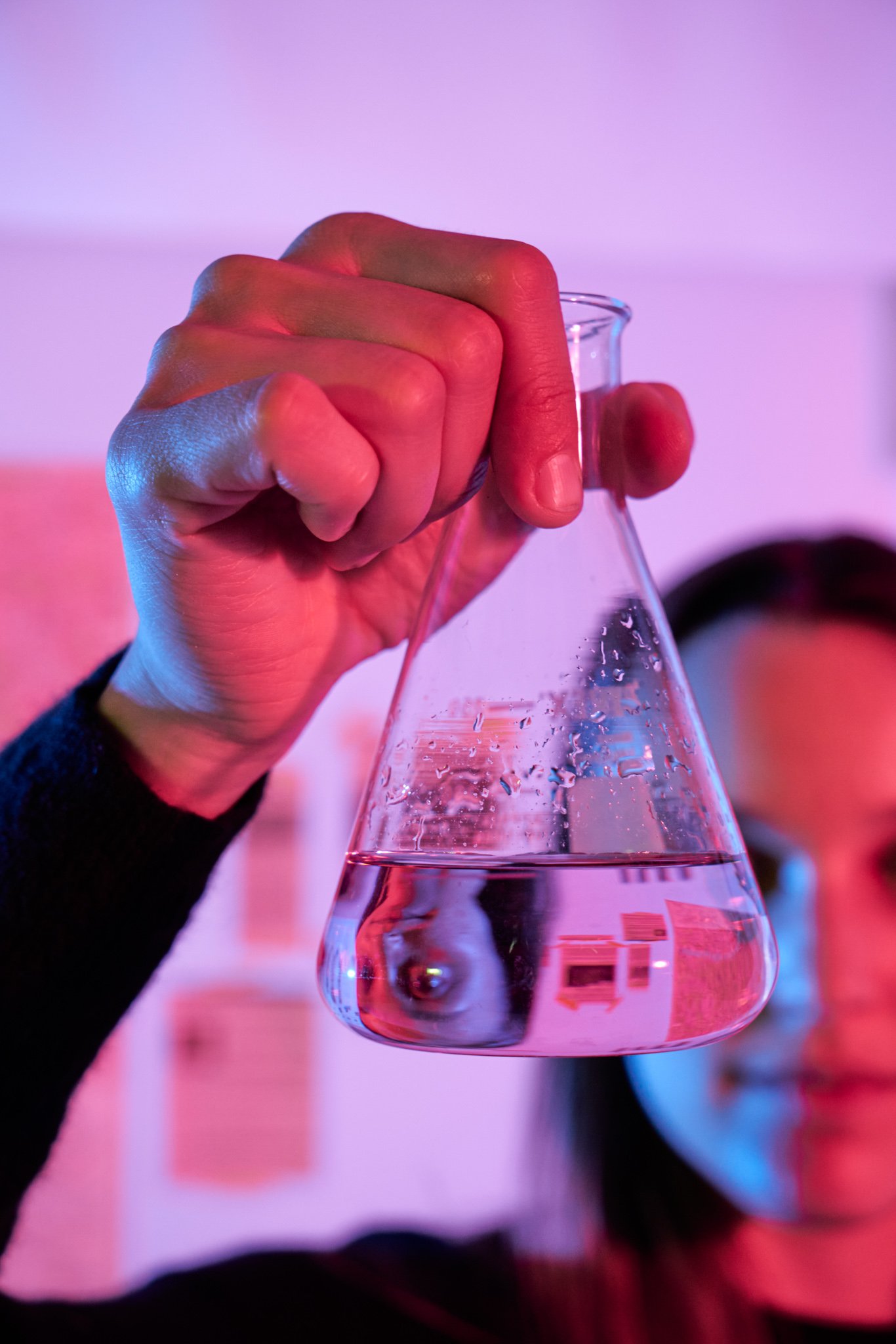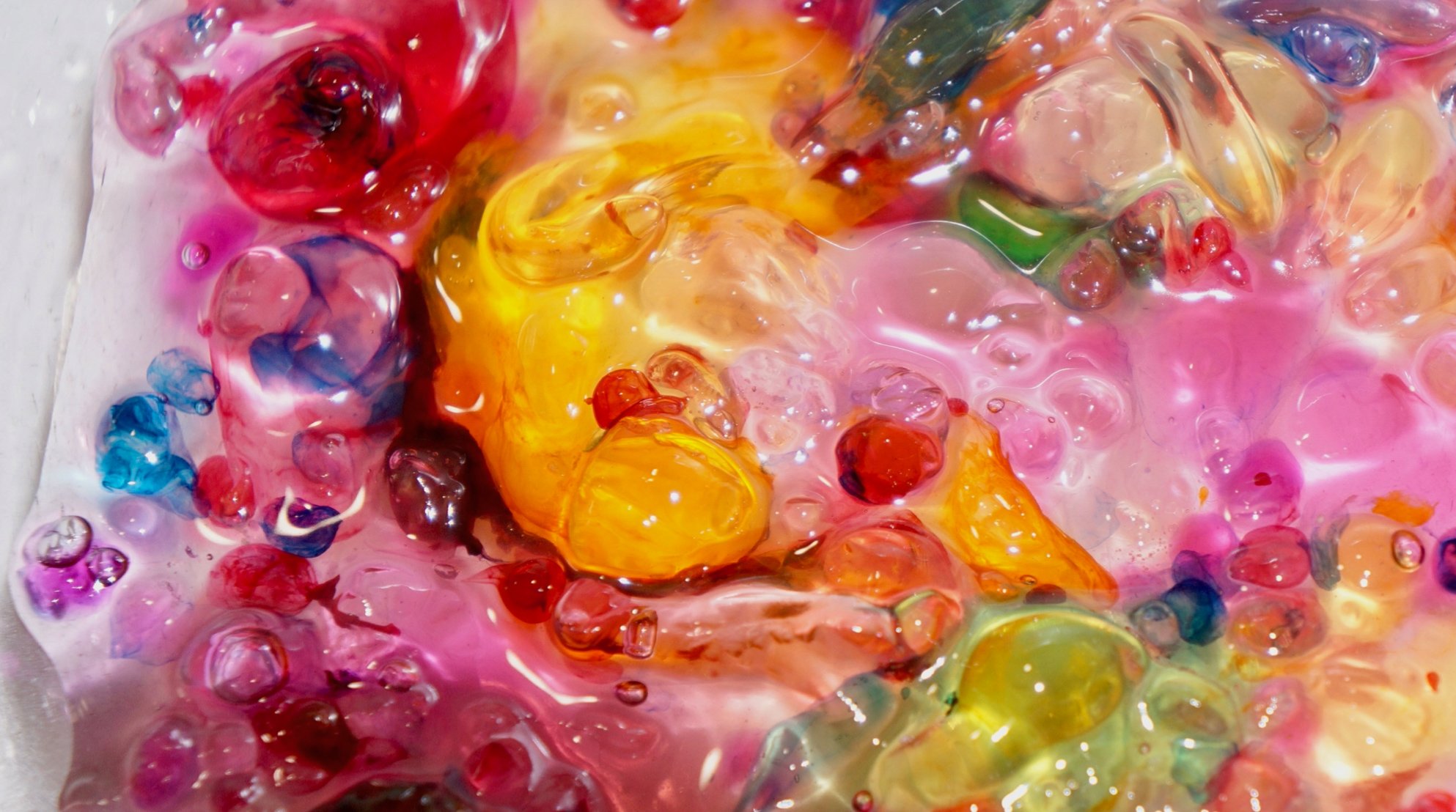
‘Future Urban Foragers’ by Laura Dudek
MA (Distinction) Information Experience Design (2019-21)
Royal College of Art, London, UK
Key supervisors: Dr. Claude Dutson
keywords: Design fiction, world building, genetic engineering, climate change, food, speculative futures, social responsibility
Innovation often promises to transform the world for better but, when met with real social needs, can have unintended consequences. What scenarios might arise from a future where democratized genetic engineering technology meets the environmental and social pressures of climate change?
Future Urban Foragers (FUF) is a design-led research project that uses design fiction as world building to probe this space. The aim of the work is to situate emerging biotech within a cultural landscape into which it may be deployed in order to encourage critical reflection around notions of plausible and desirable futures.
Context: London 2086
A city stretching towards the future by erasing its past.
The project offers a glimpse of late 21st century London where food insecurity drives urban foragers to mine their built environment for nutrients––compromising city infrastructure and material culture in the process.
Here, food insecurity drives wide-spread malnutrition and, as prices of nutrient supplements become increasingly unaffordable, citizens are pushed to take wellbeing into their own hands.
Biohackers turn to nature and find hope in lithotrophs, a class of organisms that derive energy and nutrients from rock and other minerals. Advancements in genetic engineering enable citizens to harness these organisms to extract the nutrients they need from their surrounding urban environment. As the lithographs eat rock, health rates improve, but the city of London slowly dissolves in the process.
This design fiction is rooted in research, revealed through a series of artifacts, and ultimately realized by an immersive, interactive installation. Audiences are invited to explore the project proto-scientifically to better understand the forces and decisions that shaped the genesis of this future.
Experience: Claire’s Bio Lab
The world is anchored within the biolab of Claire Taylor, a civil servant and typical Londoner who finds herself in an impossible situation when she loses her job and is no longer able to afford essential nutrient supplements.
Trapped between inflated health costs and the risk of malnutrition, Claire turns to biohacking and begins to destroy the city she once worked so hard to protect.
The installation delivers an interactive, multi-sensory experience that presents Claire’s predicament through a series of objects. Audiences are invited in to explore proto-scientifically to better understand and empathize with Claire’s circumstance.
Entry Points: Diegetic Artifacts
A diegetic artifact is a tool used to present an interior view of a fictional world. Its intention is to aid “the telling of worlds” by suggesting a context as opposed to a linear story into an experience (Sterling, 2005). Each artifact represents an entry point into the designed fiction that, when seen as a whole, builds a scenario that can be explored by individuals in their own way. The goal is to reveal the events and choices that gave rise to this designed future––encouraging audiences to reflect upon the trajectory of our shared present in relation to the project’s provocation; asking, given these implications, how might we live differently now?
Laura Dudek / MA IED / RCA / 2019-21
Laura Dudek is a creative practitioner working at the intersection of design, sustainability, and social responsibility. Her research explores behavioral design and its potential to help communities imagine and orient towards notions of desirable, sustainable futures. Laura's recent works use design fiction and world building as methods towards this end.

